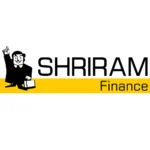LG Chem Ltd. and Korea Zinc Inc. have announced imminent plans to commence mass production of electric vehicle (EV) battery precursors through their joint venture, Korea Precursor Co. This strategic move is set to bolster supply chains for the burgeoning EV market and meet the stringent U.S. federal tax benefit requirements for clean vehicles.
The joint venture, established in August 2002, recently completed test operations of its new facility, which can produce 20,000 tons of precursor annually following an investment of 200 billion won ($144.6 million). The successful prototype production just two weeks into testing underscores the venture’s readiness for large-scale production.
Precursors, essential for manufacturing cathode materials used in EV batteries, are a mix of nickel, cobalt, and manganese. These components are crucial, with nickel making up over half of the precursor ingredients and precursors accounting for 70% of cathode material costs.
Korea Zinc highlighted the synergy between LG Chem’s chemical expertise and its own metallurgical capabilities as instrumental in achieving high-quality precursor production. This development is particularly significant as it reduces South Korea’s dependency on Chinese precursors. China currently dominates the global precursor market due to its resource-rich mines and cost-effective labor.
The venture is timely as U.S. policy increasingly restricts battery materials sourced from foreign entities of concern, including those significantly influenced by China. With federal subsidies of up to $7,500 per vehicle at stake, manufacturers are urgently seeking alternative suppliers.
Korea Precursor Co. is now focused on obtaining the necessary certifications to begin mass production, aiming to meet its production targets within the year and expand its customer base significantly. This initiative marks a critical step toward securing a more resilient and compliant supply chain for global EV manufacturers, enhancing the competitive edge of South Korean battery technology on the world stage.





